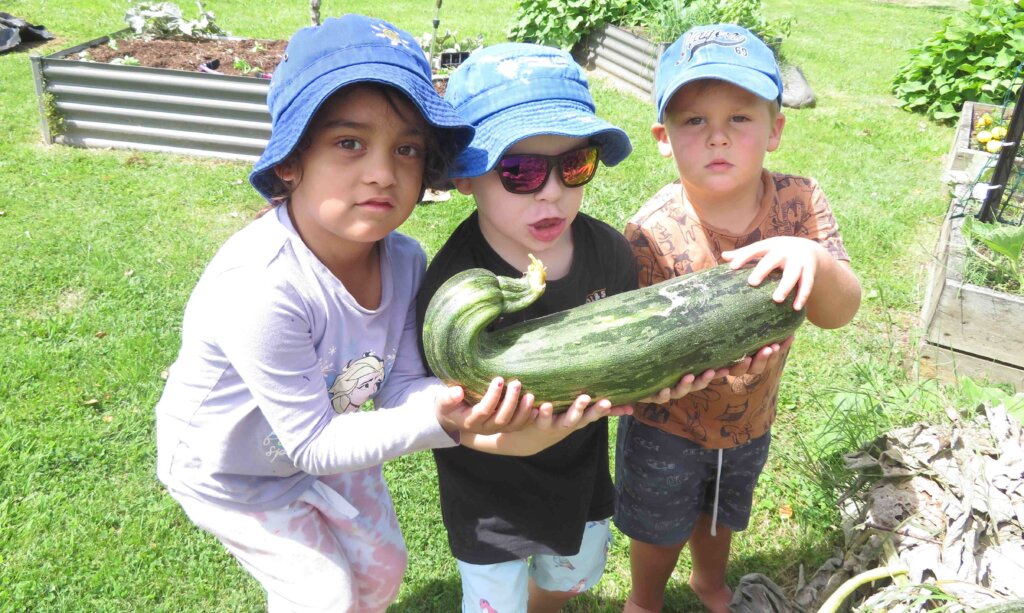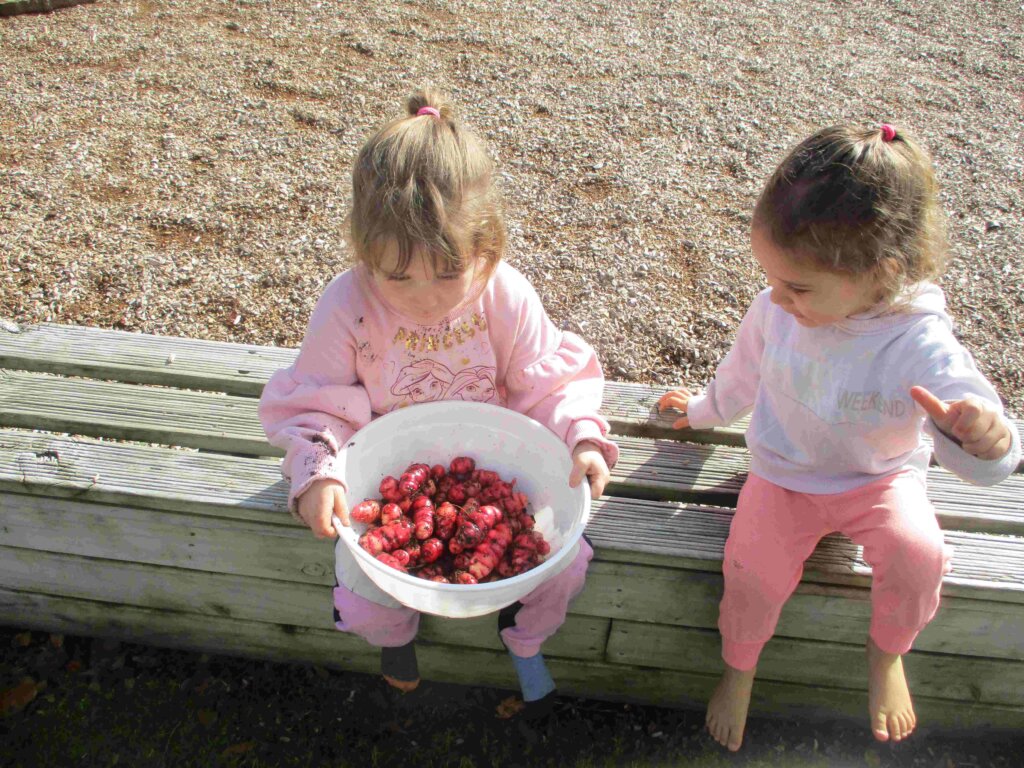
Zahkaira Macalister-Pene, Milo Bunker, both 4, and Koda Ryan, 3, with an impressive looking marrow grown in Central Kids Rewi Street Kindergarten’s vegetable garden.
With young, green-fingered gardening enthusiasts helping to ensure its community vegetable garden increases in size and scope, something else is growing at a Te Awamutu kindergarten – community spirit. Jeremy Smith reports.
For about eight years, Central Kids Rewi Street Kindergarten kindergarten staff – in partnership with tamariki, whanau and some help from community organisations – have operated a vegetable garden and grown many different fruits.
New varieties of both are added each year.
And once staff have ensured any kai distributed has been properly prepared first,” kaiwhakāko – head teacher – Kim Redshaw says a growing surplus is regularly given back to whanau, then the wider Te Awamutu community.
“The vegetable garden work we do has shifted from perhaps being more focussed on an activity for the children, to broadening to include their whanau,” she said.
“It gives tautoko to our families – supporting them to support themselves. The feedback about how produce has been a life saver is amazing.”
The work staff have been doing alongside the kindergarten’s more than 50 tamariki aged two to five years old has caught the eye of Te Awamutu-Kihikihi Community Board members.
Rewi Street received $2000 from the board’s discretionary fund this year, Kim said – an amount they’ll put towards fencing their more than five vegetable beds.
They would then eventually like to build an implement shed and establish a water pump.
“For me, a big part of what our garden is about is the connection to Papatūānuku, Mother Earth,” Kim said.
“We’re also looking for a Te Awamutu carver who can give us some support in carving a waharoa significant for our area and what we’re trying to achieve.”
Though a whole team effort, Rewi Street kaiako (teacher) Michelle Anthony plays a key role in the oversight of the vegetable garden.
The range of what’s grown now is almost too numerous to name, she says, with “almost any vegetables” – kūmara, tomatoes, brussel sprouts, cabbages broccolini, silver beet beetroot, lettuce and yams.
And fruit
About 11 tomato varieties have been produced so far – roughly 100 tomato plants were grown just last season.

Four-year-old Hazel Smith, left, and Mia Heke, 2, with some of their garden’s produce.
“We even grew a variety of Asian gourd last year. One of our whanau made a pudding”.
Surplus tomatoes, for example, were then shared with other kindergartens and The Sharing Shed.
Kim also wants to ask Kainga Aroha Community House if staff there want produce to distribute.
“Some of the favourites among the tamariki are the cucumbers and rīwai, Māori potatoes,” Michelle said.
Kim and Michelle agree the work is now bigger than just growing fruits and vegetables.
“Broader lessons are being instilled,” Michelle said.
“I think of it as being life skill we’re sharing with tamariki from a very young age.
“I was fortunate to grow up with a father who was a passionate home gardener. He then taught my children – it’s been strong in our line for quite some time, so I see it as a gift I can now pass on to this generation.”
“Values of manākitanga – showing respect and care – rangatiratanga and kaitiakitanga, guardianship and protection, are foundational here,” Kim said.
“And all three are practically on display through our work in the garden. As I see the tamariki taking great care with everything they plant – and being genuinely intentional about giving the seedlings as much love as possible – to me those are some of the best moments we observe.”
Future proofing is key too, Michelle said.
“In those discussions with tamariki, sustainability and its importance is a key learning.
“It’s important we consider how decisions we make here today impact tomorrow.”








